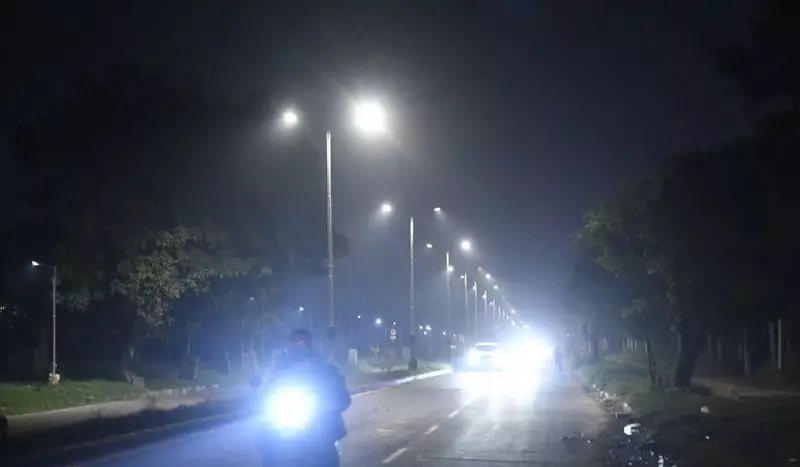
Two days after the vibrant Diwali celebrations illuminated the sky, Chandigarh finds itself grappling with a persistent environmental concern. The city's air quality has stubbornly remained in the 'Poor' category, delivering a harsh reality check to residents who hoped for clearer skies.
The Alarming Numbers
According to the latest data from pollution control authorities, Chandigarh's Air Quality Index (AQI) registered at 256, firmly placing it in the 'Poor' zone. This persistent pollution level demonstrates that the festive hangover is more than just metaphorical—it's literally hanging in the air we breathe.
What 'Poor' AQI Means for Residents
The 'Poor' AQI classification comes with significant health implications that every Chandigarh resident should take seriously:
- Respiratory discomfort is likely to affect people exposed for extended periods
- People with lung diseases, asthma, and heart conditions should limit outdoor exertion
- Children and older adults are particularly vulnerable to the polluted conditions
- General public may experience breathing discomfort on prolonged exposure
The Environmental Aftermath
The situation highlights a recurring pattern that has become all too familiar in recent years. Despite increased awareness and various regulatory measures, the post-Diwali period continues to bring environmental distress. The fireworks that create moments of beauty during the festival leave behind a legacy of pollution that lingers long after the celebrations end.
A Call for Conscious Celebrations
Environmental experts suggest that this persistent pollution pattern should serve as a wake-up call for the community. The need for more eco-friendly celebrations has never been more apparent. As Chandigarh residents navigate through these polluted conditions, many are questioning whether the traditional ways of celebrating need to evolve to protect both public health and the environment.
The current air quality situation serves as a stark reminder that our celebrations have consequences that extend far beyond the festive night. As authorities monitor the situation closely, residents are advised to take necessary precautions and consider more sustainable ways to celebrate in the future.





